Today we are thrilled to host Brandon Sanderson for an interview about his latest novel, The Rithmatist. Brandon is an established author of adult-aimed fantasy, among his works the awesome Mistborn series, Warbreaker, The Stormlight Archive series, and, of course, his completion of Robert Jordan’s Wheel of Time series. We are big fans of Brandon’s, so were thrilled when we learned he would be penning a YA series, starting with The Rithmatist.
Please give a warm welcome to Brandon, everyone!
**Please note that Brandon’s answers below are a transcription from audio he recorded specifically for this interview.**
The Book Smugglers: First and foremost, thanks so much for taking the time to talk to us!
You are an established (and highly respected and loved) author of adult fantasy (we are huge fans of your Mistborn books, The Way of Kings, and Warbreaker – excuse us while we fangirl a little bit). The Rithmatist, however, is a young adult title – what made you want to get into the YA space? Do you read YA fantasy novels?
Brandon: First off, thank you very much! I really appreciate the fangirling. I do read quite a bit of YA fiction. In fact, during the era when I was trying to break into publishing—the late 90s and early 2000s—a lot of the really exciting things in sci-fi and fantasy were happening in YA and middle grade. Garth Nix, J.K. Rowling, Dianna Wynne Jones and others created some wonderfully imaginative writing during this time.
I dipped my toes into middle grade with my Alcatraz series soon after I got published. I hadn’t written a YA before, but I wanted to—for the same reason I write epic fantasy: there are awesome things I can do in in epic fantasy that I can’t do in other genres. And there are awesome things I can do in teen fiction that I don’t feel I can get away with in the same way in adult fiction.
Science fiction and fantasy have a very fascinating connection with YA fiction. If you look at some of the series I loved as a youth — the Wheel of Time, Shannara, and the Eddings books, for example — these have enormous teen crossover. In fact, when you get to something like the Eddings books, you’ve got to wonder if they would’ve been shelved in the teen section in a later era.
Back up even further to the juveniles that were written by Heinlein and others, and we see that teen fiction has been an integral part of science fiction and fantasy. Some of the early fantasy writings — things like Lewis Carroll’s Through the Looking Glass and C.S. Lewis’s works — were foundational in how the fantasy genre came to be.
So YA feels like a very natural thing for me to be writing because I enjoy it and I respect what it has done for the genres.
The Book Smugglers: What can your fans expect from The Rithmatist, as compared to your other adult novels? Was it easier or harder to write for a YA audience (or was there anything different about the writing process for this particular book)?
Brandon: That’s an excellent question! I wouldn’t say it’s either easier or harder. For me, a story grows in my mind till I just can’t ignore it anymore, and I have to write it. That certainly happened with The Rithmatist.
As for what I did differently, there are a couple things. When I work on a teen book, I usually try to focus the viewpoints. That’s one of the big distinctions for me between an epic fantasy that has teen characters—like the Mistborn books—and a book that I’ve specifically written for a teen audience. I usually focus on a single character — maybe two — so the narrative is a bit more streamlined.
The other big difference here is that I really wanted to write something with a sense of fantasy whimsy to it. I say whimsical, and it might be the right term, and yet it’s not. For example, the magic system is one of the most rigorous and specific that I’ve written. I hope readers will find it as interesting as I do—with the defensive circles and the different types of lines.
With my epic fantasy books like The Way of Kings, for example, I looked at the size of the planet, its gravitation, its oxygen content—all the sorts of things that allow me to worldbuild with some scientific rigor. I consciously didn’t want to do that with The Rithmatist. I replaced the United States with the United Isles, turning the country into an archipelago. I shrank the planet, and I did really weird things to the history of the world because I thought it would be fun. For example, I let Korea conquer the world, because I’m a fan of Korean history.
It’s not like I’m sitting down and saying, “What is plausible?” I’m sitting down and saying, “What is awesome?” Then I write a story in which that awesomeness can shine. I let myself do that in my YA works more than in my adult works to give them a different feel. Writing this way allows me to exercise different muscles.
I believe that children and teens are better able to mode shift. When they pick up a book, they don’t necessarily feel that it has to fit in one of the genre boxes. As an author, that allows you to do some interesting things in teen that are harder to do within an adult genre.
The Book Smugglers: Do you read YA speculative fiction? Which books or authors are your favorites in the young readers category?
Brandon: I’ve already mentioned a bunch of my favorites, but I could go on! I’m quite fond of Westerfeld’s work. I think it’s quite marvelous. I’ve read Terry Pratchett’s teen books. If you’ve only read his adult work, you’re really missing out. He is quite good. I’ve also enjoyed James Dashner’s and Eva Ibbotson’s books.
I got into a lot of the YA classics in the late 90s, well after everyone else had been into them. Things like The Giver by Lois Lowry and Dragon’s Blood by Jane Yolen. Jane Yolen has long been one of my favorite writers. There’s just a lot of exciting things happening in YA, and I feel inspired by a lot of the works by those authors I’ve mentioned.
The Book Smugglers: In all of your other books, you write strong, layered female characters – what can we expect from The Rithmatist in the protagonist/heroine department?
Brandon: I often worry about falling into the trap of making female characters strong by not making them feminine. In Mistborn, Vin is strong in part because of how good of a warrior she is, and that’s fine. There are plenty of women like that, who can hold their own in a fight. But in The Rithmatist, one of the things I wanted to do was write a female character who is more girly, so to speak. I wanted to make her a strong protagonist in a way that does not undermine her femininity. I hope that I’ve managed to approach that with Melody in The Rithmatist.
The Book Smugglers: You create some of the most elaborate magic systems in fantasy today; these systems function as intrinsic parts of your worlds and characters. Typically, how do you address the different types of magic systems in your different books? Do you define these systems before you start writing the books, or do they evolve and develop as you go along?
Brandon: The answer to that is yes! It’s different for every book. With my Cosmere books — which are the shared universe of my epic fantasies — I need to be a little more rigorous. There are fundamental underlying principles that guide the magic systems, and so there’s a larger developmental phase before I start writing the book. Then I stick more strictly to the rules I’ve given myself.
All the way back in 2007, I was writing one of my epic fantasies, and it just wasn’t working. I needed a break to something creative, different, and distinctive. So I jumped ship, abandoning that epic fantasy, and wrote The Rithmatist instead, which had a lot less planning than one of my epic fantasies.
With something like The Rithmatist — which is outside the Cosmere — I’m allowed a little more freedom, which is one of the reasons I like writing books like this, where I allow myself to develop it as I write. The magic was the first thing that got me excited about The Rithmatist, so I based the book around it.
The first thing I wrote was the scene — now late in chapter one — where Joel watches Fitch get defeated by Nalizar in the classroom. It started out on a chalkboard, but I eventually moved it to the floor because that made more sense. As I was writing these chapters, I developed the Rithmatic lines and let the story feed the magic and the magic feed the story in a way that some writers call “discovery written.”
The Book Smugglers: In addition to The Rithmatist, you’ve also ventured in the the Science Fiction realm with your short stories (“Defending Elysium” and “Firstborn”). We recently learned that you’re creating a cool, limited edition tête-bêche (“head-to-toe”) bindup format of these two novelettes, in the style of the groovy old school Ace Doubles. What made you want to create this particular type of print version of your novelettes? And, since these are science fiction, tell us a little bit about writing scifi and how that differs (or is similar to) fantasy.
Brandon: We were looking at doing con exclusives, something I can take to conventions to make them a little more special for those who make the extra effort to come see me. Yet we didn’t think it would be fair to my readers who can’t make it to the cons — my readers in Sweden, for instance — if I took a story that was only available at cons. But “Firstborn” and “Defending Elysium” fit perfectly. Both stories have been out awhile, and both are free to read online. If you can’t make it to the con, you can still read and enjoy these stories.
Singly, neither story was long enough to justify the price point required for us to go through all the effort to create a book. But both stories are science fiction, and both are novelettes, so doing an Ace Double-style book sounded like the way to go.
A lot of my short fiction comes out as science fiction. When I sit down to write something short, I’ve often wondered why a science fiction story pops out. Why do my longer works come out as epic fantasy? I’ve got lots of theories. They’re armchair theories from Brandon the English major, not so much from Brandon the writer.
In science fiction, a lot of times the worldbuilding is easier to get across. Science fiction films have been such a part of our culture for so long—and imagining the what-ifs of the future leaves you with more groundwork to build upon—that in many ways there’s more the reader immediately understands and accepts.
I’ve often said that great stories are about great characters first. But beyond that, science fiction stories are about ideas and fantasy stories are about the setting. I think that’s why when I come up with a great idea story, I write it as science fiction. If I come up with some interesting setting element, like a great magic system, I write it as fantasy. I’ve found that getting across an interesting and complex magic system in a very short amount of time is extraordinarily hard, so it tends to work better for longer stories.
The Book Smugglers: We Book Smugglers are faced with constant threats and criticisms from our significant others concerning the sheer volume of books we purchase and read – hence, we have resorted to ‘smuggling books’ home to escape scrutinizing eyes. Have you ever had to smuggle books?
Brandon: I married an English teacher with a book collection as large as my own, so I haven’t had to worry about that for a long time. The smuggling of books I had to do was when I was a kid. I would be up late at night reading, and my parents would want me to go to bed for whatever reason. I mean, who needs sleep? But they would come and turn off my lights or do various things to get me to go to bed. I actually lit a Melanie Rawn book on fire once, by accident, because I was reading by candlelight. I’ve still got the copy.
In high school, I would do the standard super-nerd-reader-boy thing where I would sneak a book into my lap as I was listening to some lecture in a boring math class.
Wisely, when I got to college, I became an English major in my sophomore year. Now people expect me to read. In fact, part of my job is reading and keeping up to date on what everyone’s doing. So I don’t need to smuggle any books anymore, but I feel for those of you who do, and I would warn you not to read your books too close by candlelight, otherwise dire consequences can occur.
About the Author:
Brandon Sanderson is the bestselling author of books including Warbreaker, Elantris, The Way of Kings, and The Mistborn Trilogy — Mistborn, The Well of Ascension and The Hero of Ages. He has also written Alcatraz Versus the Evil Librarians, a book for middle-grade readers, and completed the final books in Robert Jordan’s Wheel of Time® series — The Gathering Storm, Towers of Midnight and A Memory of Light — based on Jordan’s notes and material. Sanderson teaches writing at Brigham Young University. He lives in Utah.
You can find out more about Brandon and The Rithmatist on his blog, on twitter (@BrandSanderson), on facebook, and on his website.
Also make sure to check out Brandon’s upcoming event schedule for a chance to see him a city near you and get an autographed copy of The Rithmatist (people in New York, Brandon will be here tomorrow at Books of Wonder!).
And of course, make sure to stop by later today as Thea reviews The Rithmatist. Thank you, Brandon!


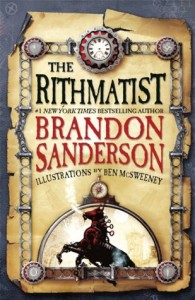
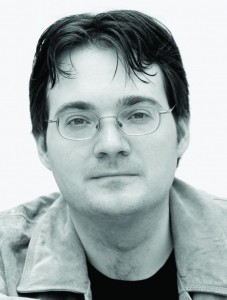
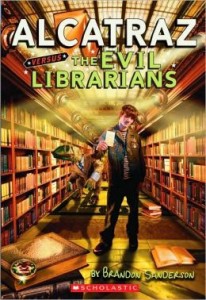
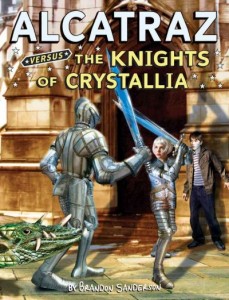
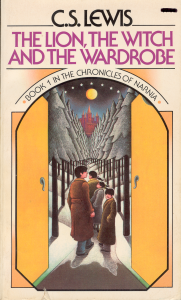
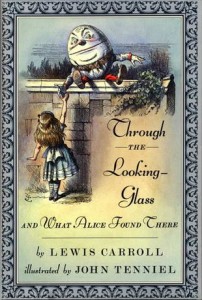
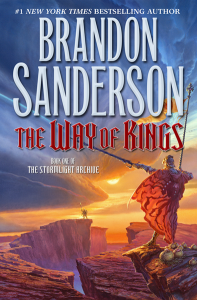
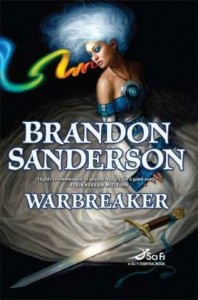
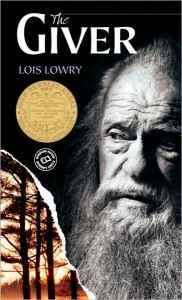
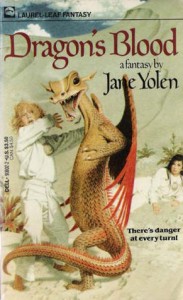
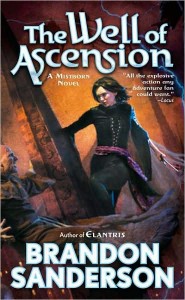
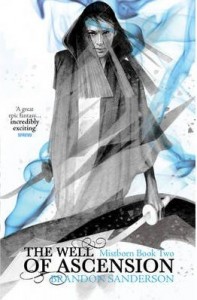
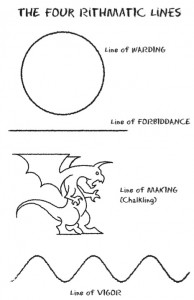
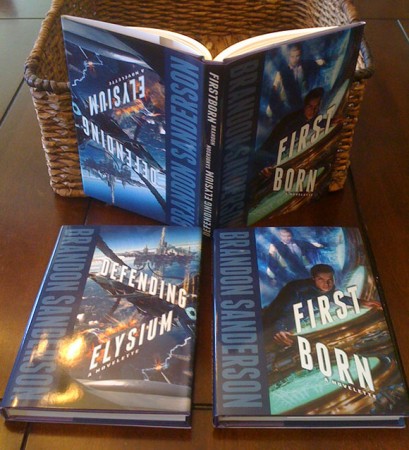








9 Comments
Patricia Eimer
May 13, 2013 at 10:17 amLoved the Mistborn series, can’t wait to read this.
Alessa Ellefson
May 13, 2013 at 12:00 pmI’m very much looking forward to reading this book. Somehow, the descriptions remind me of Hayao Miyazaki’s Spirited Away, which I loved!
Tessa
May 13, 2013 at 3:31 pmI can’t keep up with the books he keeps publishing! But I suppose that’s a good problem. Reading Emporor’s Soul right now.
Kurk
May 13, 2013 at 7:05 pmIt’s the “Stormlight Archive”, not “Lightbringer”. Lightbringer is Brent Weeks.
Jerry
May 13, 2013 at 7:21 pmWhat Kurk said. Lightbringer is an entirely different author (Brent Weeks), no less amazing (in my opinion) but not Brandon Sanderson.
Mark
May 13, 2013 at 9:08 pmI third Kurk and Jerry’s remarks
Thea
May 13, 2013 at 9:58 pmThanks, Kurk, Jerry and Mark – yes, I know, it’s The Way of Kings (which we linked to and reviewed if you clicked through). Typo/12am brain. Thanks for the heads up! Fixed.
1 Stop SEO Links Building
February 2, 2014 at 2:24 amWow. Brandon strikes again and doesn’t disappoint. I can’t get over how he’s able to think up so many creative alter realities and make them so intelligent with such great character development. The only disappointment is having to wait for the next book!
Review – The Stormlight Archives – Brandon Sanderson – Pear Reviews
September 7, 2016 at 6:56 am[…] in sheer scale, and considering they’re part of the Cosmere collection (which is potentially the biggest epic any single author has attempted to create, ever. Like, period) they have lore which builds on lore that builds on lore which doesn’t even exist […]